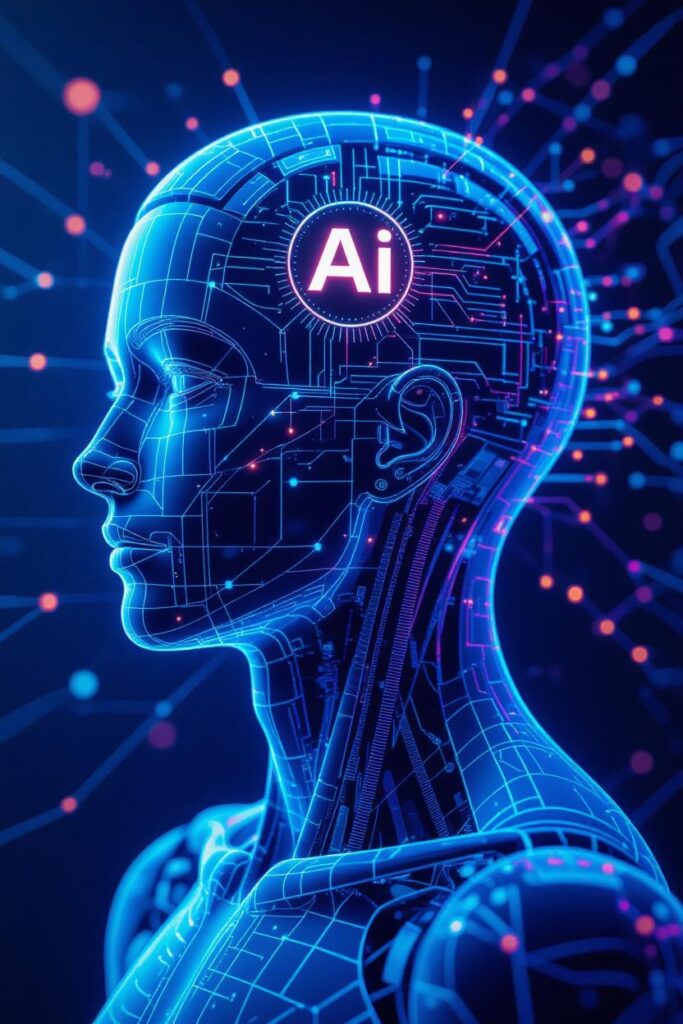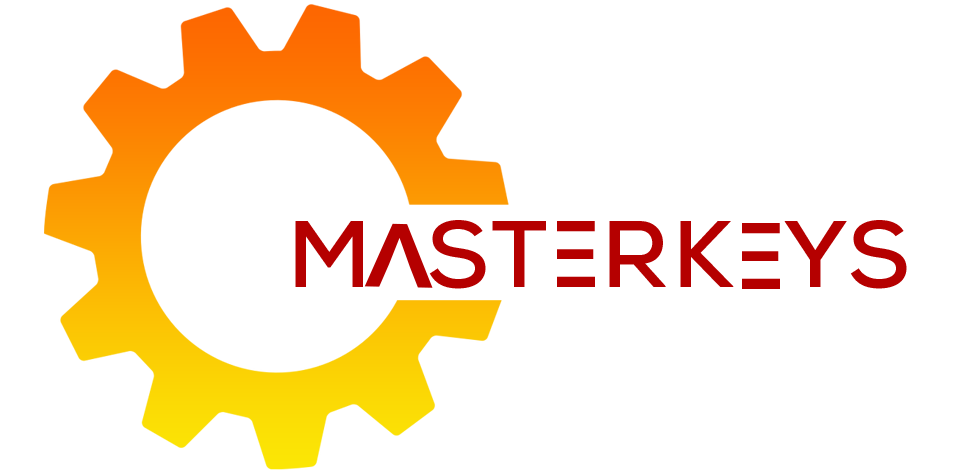
Transforming Today’s World

Main Takeaway:
Artificial intelligence (AI) empowers machines to perform complex cognitive tasks—learning, reasoning, perception, and decision-—driving innovation across industries. Mastery of AI skills—from foundational programming to advanced model development—unlocks transformative value for organizations and individuals, while rapidly growing AI-related job opportunities underscore the importance of lifelong AI learning.
As AI reshapes industries worldwide, mastering both foundational and advanced AI—from machine learning fundamentals to ethical governance—empowers students and professionals to drive innovation, secure high-growth roles, and deliver measurable impact in the Fourth Industrial Revolution.
What Is Artificial Intelligence?
Artificial intelligence (AI) is the capability of computational systems to perform tasks that normally require human intelligence—learning from data, reasoning under uncertainty, perceiving environments, and making decisions to achieve goals. Since its inception in 1956, AI has evolved through symbolic logic, statistical learning, and most recently deep learning and transformers, catalyzing breakthroughs in web search, recommendation engines, virtual assistants, autonomous vehicles, and generative content creation.
In an era where intelligent machines augment human capabilities, artificial intelligence (AI) has transcended academic theory to underpin critical applications—from autonomous vehicles navigating busy streets to generative models crafting lifelike prose. But what exactly is AI, which skills lie at its core, and how can today’s learners access the tools and courses to master them?
Defining AI and Its Modern Value
At its essence, AI equips computers to perform tasks that traditionally require human cognition—learning patterns from data, reasoning under uncertainty, perceiving complex inputs, and making decisions to achieve goals. Since the Dartmouth workshop of 1956, AI has evolved through symbolic logic, statistical learning, and—over the past decade—deep learning and transformer architectures, sparking breakthroughs in web search, recommendation systems, virtual assistants, and more.
Core AI Skills and Their Modern Applications
| Skill | Description | Example & Value |
|---|---|---|
| Programming & Data Structures | Mastery of a language (e.g., Python) and algorithms for data processing and modeling. | Implementing training pipelines in TensorFlow or PyTorch to preprocess millions of images for a computer-vision system, reducing manual inspection time by 90%. |
| Machine Learning Fundamentals | Understanding supervised/unsupervised learning, classification, regression, clustering, and evaluation metrics. | Predictive maintenance in manufacturing: ML models forecast equipment failures, cutting downtime by up to 50%. |
| Deep Learning & Neural Networks | Designing and training multi-layer neural architectures (CNNs, RNNs, transformers) for complex pattern recognition. | Transformer-based language models (GPT-4) powering real-time translation services with 98% accuracy, facilitating global communication. |
| Natural Language Processing | Techniques for text analysis: tokenization, embeddings, sequence modeling, question answering, and sentiment analysis. | Chatbots in customer service handle 70% of inquiries autonomously, boosting satisfaction and reducing support costs. |
| Computer Vision | Image/video processing: object detection, segmentation, facial recognition, and activity recognition. | Autonomous vehicles use vision models to detect pedestrians and obstacles, achieving Level 4 autonomy in controlled environments. |
| Data Engineering & Big Data | Building data pipelines, ETL processes, and managing large-scale distributed storage and processing frameworks (Hadoop, Spark). | Real-time fraud detection systems analyze millions of transactions per second, flagging anomalies within milliseconds. |
| Prompt Engineering & Deployment | Crafting effective prompts for generative models and deploying AI services via APIs or cloud platforms. | Marketing teams use prompt-engineered GPT agents to generate personalized ad copy at scale, increasing campaign ROI by 30%. |
| Model Evaluation & MLOps | Validating model performance, monitoring drift, versioning, and automating end-to-end ML workflows (CI/CD for ML). | Continuous monitoring catches model degradation in credit scoring, enabling retraining before default rates rise. |
| Ethics, Privacy & Governance | Ensuring AI fairness, transparency, accountability, data privacy (e.g., GDPR compliance), and risk mitigation. | Bias auditing frameworks detect demographic parity issues in hiring algorithms, preventing discriminatory outcomes. |
| Domain Expertise & Communication | Translating domain problems into AI solutions and communicating insights to stakeholders. | In healthcare, clinicians and data scientists co-design AI diagnostics that integrate seamlessly into clinical workflows, improving patient outcomes by 15%. |
Free Global AI Courses on YouTube
| Course Title | Provider | Link |
|---|---|---|
| Introduction to Computer Science and Programming Using Python | MIT OpenCourseWare | https://youtu.be/k6U-i4gXkLM |
| Machine Learning | Stanford University (Andrew Ng) | https://youtu.be/UzxYlbK2c7E |
| Deep Learning Specialization: Neural Networks and Deep Learning Basics | DeepLearning.AI (Andrew Ng) | https://youtu.be/Y3QiW2lW6FE |
| Artificial Intelligence (AI) Fundamentals | Microsoft Azure | https://youtu.be/W8XJ5wYUPkg |
| Natural Language Processing with Transformers | Hugging Face | https://youtu.be/t1wh_FqGRSc |
| Reinforcement Learning | David Silver (DeepMind) | https://youtu.be/2pWv7GOvuf0 |
| Computer Vision Basics using OpenCV | FreeCodeCamp | https://youtu.be/WQeoO7MI0Bs |
| Data Engineering and Big Data with Apache Spark | Databricks | https://youtu.be/_C8kWso4ne4 |
AI Job Market Growth
- Global Projections (WEF, 2023): By 2025, AI and automation are expected to displace 75 million jobs but create 133 million new roles globally, yielding a net gain of 58 million jobs concentrated in data analysis, AI development, and digital services.
- Skill Demand (U.S., 2019–2023): Approximately one-third of U.S. employment is highly exposed to AI, with high-skill roles—software development, data science, AI ethics—experiencing above-average wage and employment growth, indicating AI’s productivity benefits.
- Emerging Roles: Prompt engineers, AI ethics officers, MLOps engineers, AI product managers, and AI trainers have surged in demand, with average salaries 20–50% above national averages for technical professions.
Value of AI and AI Skills:
AI drives efficiency (reduced operational costs, predictive insights), innovation (new products and services), and scalability (automated processes). Skilled AI practitioners enable businesses to extract actionable insights from vast data, improve decision-making, and achieve competitive advantage in an increasingly AI-driven economy. Continuous upskilling in AI ensures workforce adaptability and opens high-growth career pathways in the Fourth Industrial Revolution.

Dr. Amit is a seasoned IT leader with over two decades of international IT experience. He is a published researcher in Conversational AI and chatbot architectures (Springer & IJAET), with a PhD in Generative AI focused on human-like intelligent systems.
Amit believes there is vast potential for authentic expression within the tech industry. He enjoys sharing knowledge and coding, with interests spanning cutting-edge technologies, leadership, Agile Project Management, DevOps, Cloud Computing, Artificial Intelligence, and neural networks. He previously earned top honors in his MCA.



